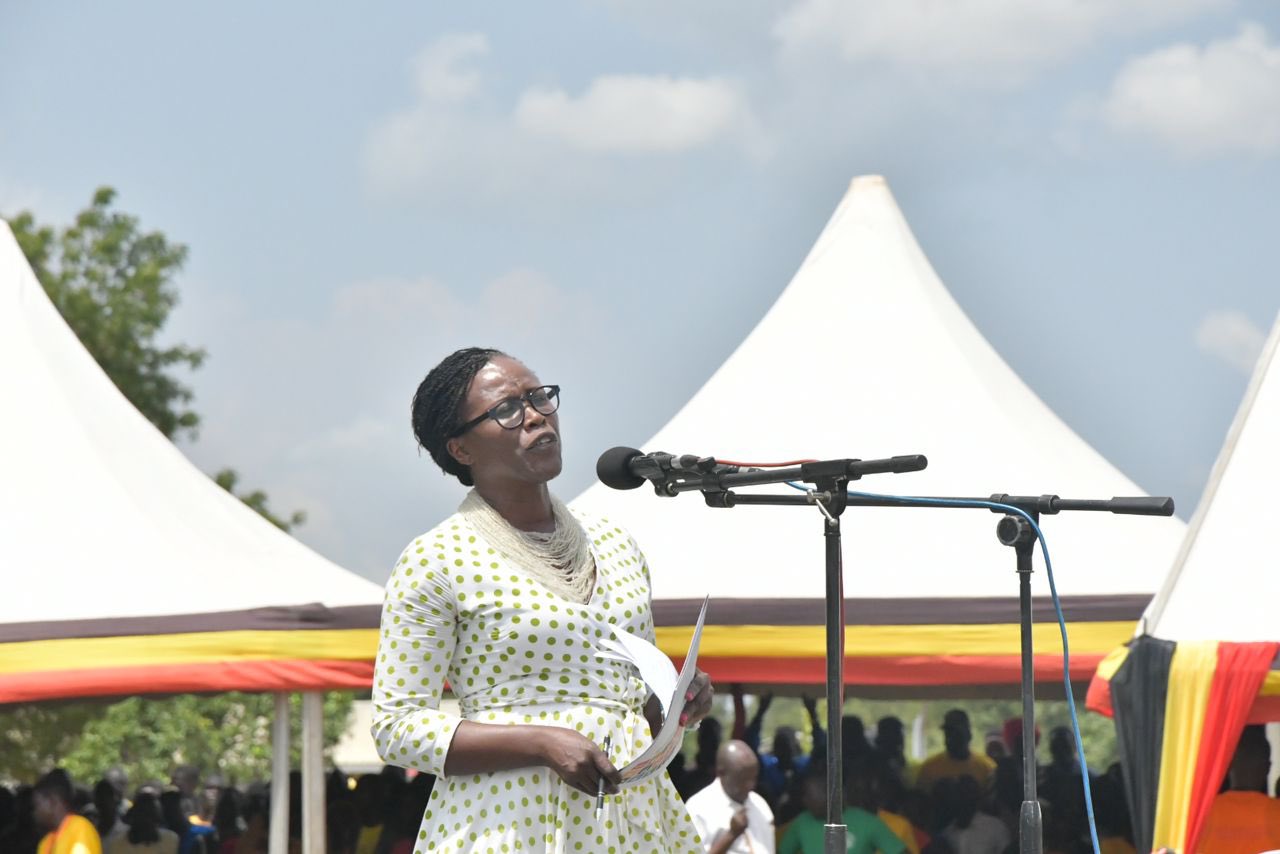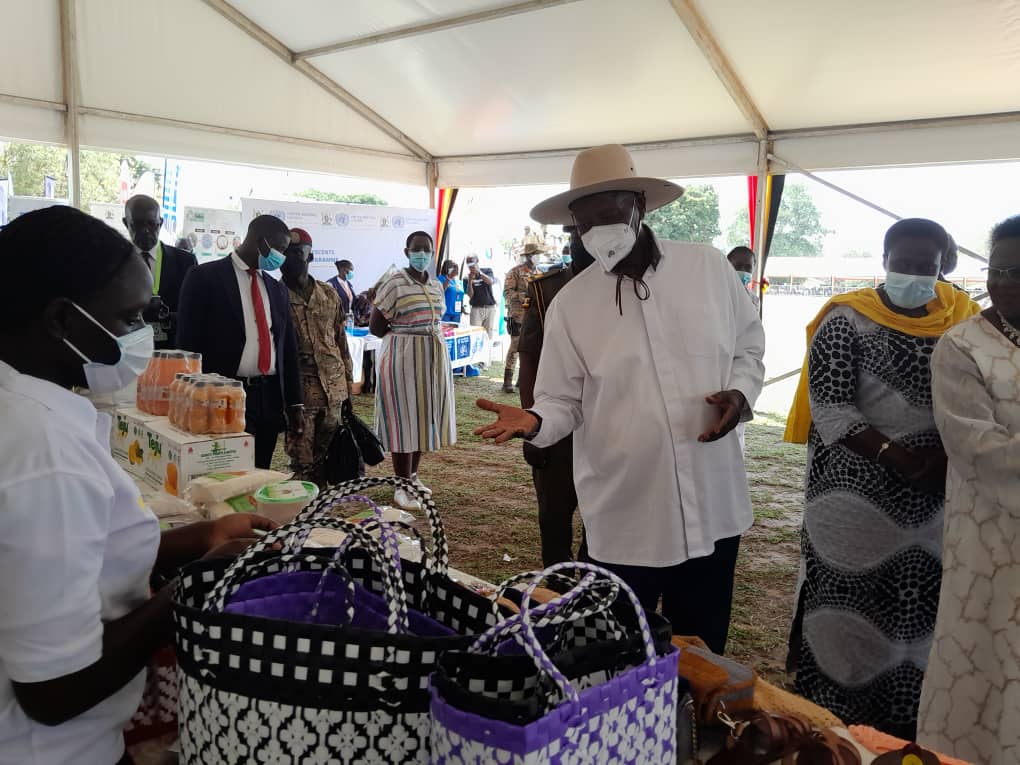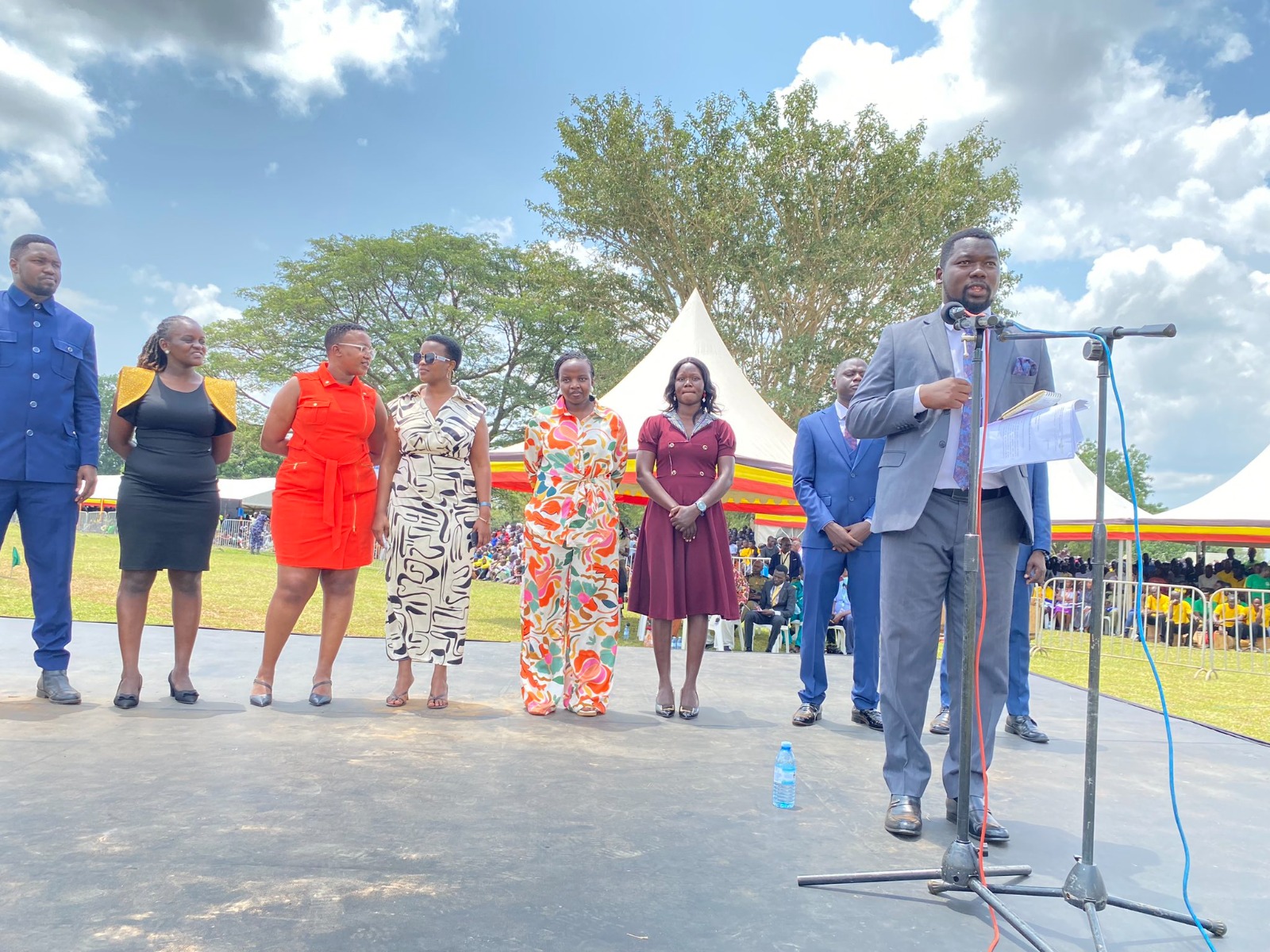
SOROTI – Susan Namondo – the United Nations Uganda Resident Coordinator said that the best way to minimize rampant unemployment amongst young people in Uganda is to enable them to create their own jobs or else work for somebody who has.
Speaking at the commemoration of International Youth Day in Soroti on Tuesday, Namondo noted that this can only be realized after enabling innovations paired with entrepreneurship. The celebrations ran under the theme: “Skills Development for Enhancement of Youth Opportunities.”
“What we should further strengthen urgently is the ecosystem of support in innovation and entrepreneurship through the setting of deliberate networks of institutional actors and support funds to promote new businesses.”
She added, “Every young person should have the capacity to realize their full potential. This means providing access to quality education, and ensuring youth participate in decision-making processes that impact their lives.”
She revealed that many programmes are already in place to make a positive change in the lives of young people but need to be improved.
“I guess what we could do now is to improve the management of these programmes and expand them so that we can reach even more youth because for these programmes to have a transformative effect, we need to reach a critical mass because even with all commendable work that is being done now, an approximate 50% of 7.7 million Ugandans who live in rural areas are neither in education nor in training nor in employment, they are floating.”
Gracing the event, President Yoweri Museveni urged the youths and activists to insist on free education in government schools noting that although Ugandans have refused to implement the program, it would have helped the whole country.
“When we introduced it, we knew why we introduced it. In 1958, when we were in our area of Kyamate, Ntungamo area, the people who went to Mbarara High School were like four or five from the whole area. Many children were not going to school at all but even those who went, very few would proceed beyond Primary Six. That’s what we wanted to solve. In my view, we need the implementation of free education in government primary and Secondary schools. Those who are rich can send their children to private schools,” he explained.
“Why have leaders kept on bringing back charges in UPE schools? According to the figures I have, the children in primary schools are 11 million but the ones in secondary schools are 1.7 million. Yet the years of primary and the years of secondary are almost the same. It’s 7 years for primary and 6 for secondary. Why do you have 11 million learners in Primary and 1.7 million in secondary, where have the 9.3 million learners gone? You people, you all come from villages, go back and check how many people dropped out of school in each area,” he wondered.
He advised children in the school system to always participate in sports and exercises so that they are fit and embrace spiritual development through religious programs so that they have discipline and fear God.
“We also need to audit the cultures and see what we can recommend for our children. Some of the cultures for our people were not good, like mistreatment of women.”
Museveni encouraged the youths to embrace and understand the four principles of the National Resistance Movement of Patriotism, Pan-Africanism, Socio-economic Transformation and Democracy for their prosperity.
“After you have gone through the school system, you should engage in wealth creation through the four sectors of the economy which include commercial agriculture, manufacturing and artisanship, services and ICT. Being a political leader or administrator is also part of the services sector but the jobs there are few. So the government jobs are not enough but the services jobs in the private sector are much more.”

The President also cautioned the youths against environmental degradation.
“The misuse of swamps must stop. The swamps are for water to feed the dry land.”
The Minister of Gender, Labour and Social Development, Betty Amongi informed the President that the theme of the celebrations resonates with the fact that skills are important for the realisation of opportunities of the youths, and it addresses the high numbers of the youths who are not in employment, not in school and not in the formal sector.
“The recent National Population and Housing Census of 2024 put the youths between 18 to 30 years at 10.4 million, representing 22.6 percent. Youths between 30 to 34 years are 2.8 million, constituting 6 percent. Children between 0 to 17 years are 23.1 million which constitute 50.2 percent. This makes Uganda one of the youngest and most rapidly growing populations in the world, with about 4 percent population growth and 78.8 percent of Uganda’s population are now under the age of 35,” she said.
The Minister also decried the lack of skills and competence among the youths, saying the factors deter them from effectively entering the job market.
“More than 1 million young people enter the job market every year. This presents both a huge opportunity but also a challenge. The 2021 Uganda National Labour Force Survey showed that employers across formal and informal sectors in Uganda identified lack of practical, digital entrepreneurship skills as well as soft skills such as managerial, communication, social, emotional as limiting most youths from entering the job market,” she noted.
“They also assert that our education system is not fully aligned with the Labour force needs leading to a mismatch of skills and competence for employability.”
Ms Anne Sizomu – Programme Specialist- Adolescent and Youth SRH at United Nations Population Fund (UNFPA) told the press that there is a need to work at ensuring that young people vulnerabilities are reduced to realise their potential.
At UNFPA, she said they run livelihood skills by working with the government as well as the partners – looking at the linkage between sexual and reproductive health as well as the young people realizing their potential.
“If a young person [girl] doesn’t have what to eat, even if they know the information, those skills may be dried so much because its either they find someone who would want to take the advantage of that girl in order to get what to eat or a sanitary pad – that’s why the integration of livelihood and skilling is very important.”
“Like in Busoga, we are running the EYE Programme where teenage pregnancy is high. In Acholi and West Nile we have SAY Programme funded by Denmark. We have also part of the global programme for ending child marriage as well as FGM which runs in Karamoja and Sebei where we are doing a lot around economic empowerment and life skills because we know also that if we invest and economically empower these people without life skills, it also another challenge because what will happen, some of them start businesses then get pregnant and these businesses are dependent on them and they cannot run them towards the end of the pregnancy or cannot continue after giving birth.”
Commenting on President’s education transition issue, Sizomu noted that much as there is free education, most families are still poor that they cannot afford to buy uniforms nor feed their children.
Also she attributed the challenge on rampant teenage pregnancies.
“If you have one in four of the adolescents under 19 being either pregnant or have had a child, it means we are losing. Some children are losing interest because they want to earn – there is a sugar factor to provide manual work, they would rather earn, especially post-covid where learners feel old and lost interest in education.”

The Danish Ambassador to Uganda, H.E Signe Winding Albjerg also re-echoed the importance of investing in skills for young people – noting that “How we engage and empower them today will define the future of our nations. In my interactions with young people across Uganda and beyond, their fresh perspectives and innovative ideas have consistently inspired me. Such ideas and perspectives are vital in driving forward thinking and creativity.”
She underscored that skill development is a crucial factor in economic empowerment where young people that acquire relevant skills can be better positioned to secure gainful employment or create own entrepreneurial ventures.
“This will not only reduce unemployment rates but also enhance the overall economic development of the country. Skilled workers contribute to higher productivity levels, which in turn attracts more investments and fosters economic growth.”
She reiterated the EU Delegation and Member States’ commitment to working together to empower the youths, noting that they are cognisant that when young people are meaningfully engaged and taken seriously, their energy and enthusiasm have the power to drive transformation to new heights.
H.E Albjerg noted that as the EU and Member States in Uganda, they are supporting a number of youth programmes focusing on exact skilling including;
– Vocational education and skilling programmes in relevant trades such as construction and brick laying, motor vehicle mechanics, electrical system, tailoring, hair dressing, bakery among others to enable the young people to secure sustainable employment and live up to their full potential
– Agriculture, financial literacy and business skills to create green and decent jobs for the youth for their social and economic transformation.
– Life skills training on self-awareness, self-esteem and assertiveness to empower their agencies in making informed choices.
“One of the critical challenges today is a mismatch between the skills acquired through formal education and the demands of the labour market. By focusing on vocational training and practical skill acquisition, the country can bridge this gap. This is something the EU is actively engaged in.”
The Chairperson of the National Youth Council-Uganda, Mr. Jacob Eyeru thanked the President for guiding the youth to the right path of attaining education and creating jobs
“The NRM government also dealt with the issue of our health through immunisation. Now we are dealing with the issue of socio-economic transformation,” he said.
He also commended President Museveni for setting up the skilling hubs that impart skills to the youths across Uganda. This, he said, has helped to deal with youth unemployment in the country.





